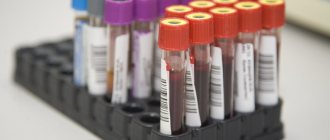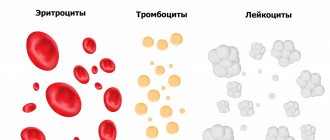Useful articles / August 24, 2020
Immunity is our main invisible defender in the fight against disease. However, few people understand how the internal forces of the body work and are formed. Since childhood, we have heard “good immunity” (if the child is little sick) and “bad immunity” (if any draft ends in coughing and snot). And the expression “strengthening the immune system” has become a favorite advertising ploy of recent decades. How do you know if your immune system needs strengthening? What analysis will tell us about the internal forces of the body?
Immunity cannot be seen, but it can be measured quantitatively and qualitatively. The “immunity” test is called an immunogram. With its help, the doctor finds out the immune status of a person (assessment of the functional activity of the immune system organs). The study is prescribed to understand the functioning of the body’s defense system, diagnose pathologies or monitor the course of existing diseases.
What is immunity?
A person receives his first immune cells from his mother from the moment of birth. Natural immunity is formed before the age of 15-17 and has 4 crisis periods (from birth to 6 months, from 6 months to 2 years, from 3 to 6 years, from 6 to 15 years). Attempts to stimulate the child's defenses are in most cases unnecessary.
— If a child gets sick 4-5 times a year, that’s normal! — explains Vladimir Nikonorov, allergist-immunologist at the ELISA Medical Center. “This supports his natural immunity; antibodies to various viruses are produced. There is no need to interfere in this process. This is especially true for parents who independently prescribe medications for their child to “strengthen the immune system,” which can lead to the fact that the growing body produces less natural hormones that protect against infectious diseases. You can achieve the opposite effect - your immunity will become worse.
What is the test for immunity? Most often these are respiratory infections. Doctors identify the three most dangerous microbes: staphylococcus, streptococcus and Haemophilus influenzae. Various herpes infections can also cause decreased immunity.
Screening for infections
Simultaneously with the study of the immune system, we usually clarify the presence of infections in the body and the nature of their interaction with the immune system. Humans constantly interact with microbes. Normally, microbes are under the control of the immune system and do not penetrate into the internal environment of the body. But if the immune system is impaired, infection occurs easily. It is better to treat such infections in combination with restoring the immune system. Therefore, the correct examination before treatment is “Immunogram + Infections”. There is a profitable special offer.
What tests for infections are possible:
- Antibodies and PCR blood tests to detect infections.
- Analysis of stool for dysbacteriosis and intestinal infections.
- Examination by a gynecologist (for women) or a urologist (for men) with scraping collection for subsequent laboratory PCR testing and bacteriological culture.
- Collection of bacteriological cultures and PCR smears from the nasal cavity and pharynx, eyes, bacterial culture and PCR examination of urine, sputum, joint fluid, pus, etc.
Immunogram: what does the analysis of immune status show?
An immunogram is an analysis of the general state of the immune system, helping to assess the body’s defenses, as well as diagnose pathologies or predict the course of the disease . The biomaterial for analysis is blood.
Typically, the study is carried out to identify immunodeficiency, autoimmune infectious and hematological diseases. An immunologist prescribes an immunogram.
Indications for research on immune status:
- Chronic diseases.
- Prolonged course of viral and other infectious diseases.
- Increased body temperature for no reason.
- Suspicion of human immunodeficiency virus.
- Oncological diseases.
- Autoimmune pathologies.
- Allergic reactions.
- Before major operations.
The result gives an idea of the patient's immune status. Immune status is a qualitative and quantitative characteristic of the functioning of the immune system organs. One of the main indicators is the presence of a special type of protein in the blood - immunoglobulins. They counteract toxins, microorganisms and prevent the development of inflammatory processes. As for children, this analysis allows us to predict what will happen to the child’s health in the next few months (for up to one year).
Why do you need an immunogram?
The immune system is a complex system. When planning treatment, we must clearly understand what exactly violations in the immune system have occurred and why. Then treatment can be confidently directed exactly where it is needed. There is no cure for the entire immune system. Modern medicines make it possible to selectively, “point” help a particular immune process, and an immunogram helps to determine effective and safe points of application of treatment. This treatment is more reliable, requires less medications and meets safety criteria.
We can offer you a full laboratory examination of immunity and assistance from an allergist-immunologist in “deciphering” immunity tests. There is a profitable special offer
| Type of immunogram | Immunogram result |
| Standard immunogram | |
| Extended immunogram |
|
| Interferon status |
|
Samples of research results with transcripts
How to prepare for a blood test for immune status?
To get an accurate report on the state of the body’s protective functions, you need to carefully prepare for the analysis:
- Avoid alcohol 24 hours before the test.
- The analysis is taken on an empty stomach (obligatory fasting 8-14 hours before going to the laboratory).
- Do not smoke at least 3 hours before the test.
- Avoid physical activity on the eve of the test.
- If you are taking medications, be sure to tell your doctor.
How to plan a pregnancy
The disease is difficult to cure, but easy to prevent. Doctors have long realized that it is much easier for them to engage in prevention - it brings much more tangible results, and it is much easier. Treatment always lags behind prevention. Prevention of diseases that do not yet exist is very simple, and if you take it seriously, they can really be avoided. Treatment of existing complications is always late and lags behind the mechanism of their development. Treatment is always a step of desperation, always consent to side effects in order to cure the underlying condition, always an advanced stage. The strategy of modern medicine is prevention, the strategy of modern obstetrics is planned, prepared pregnancy.
It has long been proven that most complications that develop during pregnancy can be prevented by proper preparation, namely by replenishing vitamin deficiencies, examination, diagnosis of possible diseases, conditions, predispositions, and their correction. There are conditions whose harmful effects can be completely eliminated if identified in advance: for example, lack of immunity to rubella. One vaccination, 3 months of contraception - and such a problem no longer exists, otherwise - 9 months of stress, constant testing and in the event, God forbid, infection - a 50% chance of developing fetal defects and a clear recommendation to terminate the pregnancy.
There are conditions that cannot be completely eliminated, but diagnosing them before pregnancy allows the attending physician to predict possible expected complications, be prepared for them and prescribe their correction in time - literally from the first days of the delay, before contacting the doctor, the woman begins taking medications that allow her to maintain pregnancy in the early stages.
A visit to the gynecologist can bring unpleasant surprises - for example, in the form of a mild inflammatory process that can become more active during pregnancy. Treatment will take time. Therefore, you need to start preparing for pregnancy at least three months before the expected conception.
. Better yet, six months.
How is the analysis done? Immunogram indicators
Blood sampling takes place exclusively in a clinical setting. Most often, a general immunogram is performed; if serious problems in the functioning of the immune system are detected, an extended one is performed. An extended immunogram is carried out in two stages. First, they learn about the “weak” areas of the immune system and deviations from the noma indicators, then they analyze each indicator in detail. The number of leukocytes, lymphocytes, and platelets is examined - these cells are the first to strike at viruses and infections that enter the body. The activity of neutrophils and other specific cells of the body’s defense systems, their ability to destroy and digest disease-causing cells is also studied.
On average, it takes from 5 to 14 days to conduct a detailed study and decipher the data. As for the normal immunogram parameters, the data differs in children and adults. Gender, presence of diseases, medications taken, etc. also influence. The important point is that each laboratory is guided by its own standards, so it is recommended to take tests and monitor health in one laboratory. Only competent and qualified specialists should decipher the immunogram. Remember that the result of an immunogram is not a diagnosis, but information about the state of your immunity, which helps the doctor decide on treatment tactics.
Is an immunogram prescribed for sexually transmitted infections?
Recently, in Russia, the appointment of studies of the immune system (the so-called immune status) for patients with sexually transmitted infections has become widespread. They are substantiated by numerous dissertation works in Russia and publications based on them in Russian medical publications. Undoubtedly, the immune system plays a certain important role in infection and the course of infection, however, numerous observations and studies of immunogram parameters in patients with sexually transmitted infections, carried out in large foreign medical centers, either no deviations from the norm were detected, or the deviations were insignificant
| In world medicine, immunity testing is not prescribed for patients with sexually transmitted infections and is not included in the list of mandatory and additional studies. Any absolutely healthy person can become infected and develop a sexually transmitted infection, regardless of the state of their immunity, although in persons with impaired immunity (for example, HIV-infected people), the risk of infection is undoubtedly higher. |
Indications for prescribing an immunogram are the signs of immunodeficiency listed above, as well as HIV infection detected in patients. One type of immunogram can be considered the determination of specific antibodies to antigens of pathogens of sexually transmitted infections. Most often, this study is prescribed for the diagnosis of syphilis, less often for the diagnosis of human herpesvirus infections and chlamydial infections.
Our chances: how long will it take from the start of planning to conception?
It may seem unusual that sometimes it takes six months or even a year to conceive a child. This is due to the fact that ovulation may not occur every month. If a woman has recently stopped taking birth control pills or interrupted some other course of hormonal contraceptives, it will take several months before her menstrual cycle returns. Emotional factors, lifestyle changes and poor health can also affect ovulation. But even if a woman had sex right before ovulation, if her egg was successfully fertilized, the developing embryo may not implant. Thus, a married couple should not be too surprised if their attempts to conceive are unsuccessful within six months or so. For healthy married couples who make love without using contraception two to three times a week, the typical picture looks like this:
- 60 out of every 100 couples can conceive within six months;
- 80 out of every 100 married couples can conceive a child within one year;
- 90 out of every 100 married couples can conceive a child within two years.









